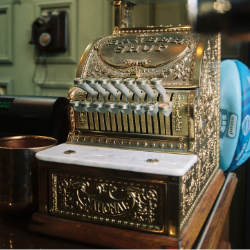The Payment Schedule
 When we make an agreement between the artists and the purchaser then both parties agree that a show will take place on a certain day in the future.
When we make an agreement between the artists and the purchaser then both parties agree that a show will take place on a certain day in the future.
If that show doesn’t happen, then that is a day missed in the artists diary – it is essentially a significant loss of potential earnings for the artist – and by extension the agency as well.
At the time of the contract both parties make a commitment. At its most basic level, the purchaser makes a commitment to put the show on, promote it and pay the artists an agreed fee, whilst the artist makes a commitment to show up and perform.
Of course there are many different circumstances where a show may get cancelled or postponed, some of them are legitimate and some are not. It’s the purpose of the contract to distinguish between the two and then, to describe what will happen if things don’t go according to plan.
Once the contract has been agreed and signed, the artist is reliant on the promoter to do the things they have agreed to do in a timely fashion. The artist on the other hand, doesn’t have to fulfil their side of the bargain until the show date. There are a lot of things that can potentially go wrong before we get to show day. So we need to make sure that the contract enforces what the promoter has agreed to do, as time goes by.
One of the most important contractual levers that the artist and the agent has is The Payment Schedule. This describes when and how much money for the show is paid across to the agent’s client account in advance of the show, on the show date or perhaps after the show has taken place.
The money collected in advance of a show still belongs to the purchaser until the artist completes their side of the bargain and performs – unless terms in the contract are breached. The contract explains what happens to that money if that happens.
When money resides with the agency, it is of course much easier to pay the artist in the event that the contract is not stuck to.
So collecting money from the promoter in advance of a show incentivises the promoter to do their job better and it also makes paying the artist more likely if things go wrong. In short if the show is cancelled then money will be lost – and no one wants that to happen.
How the payment schedule is arrived at is a judgement call made by the agent. There is no one-size-fits-all approach. It will depend on a risk assessment made by the agent. The more complicated the payment schedule, the more administrative effort involved. So that also needs to be considered – it’s a waste of time having a complicated payment schedule with a trusted venue who has shown consistently that they can be trusted to pay on time.
Let’s consider the different possible steps in the payment schedule.
- Binder
The binder is a payment that is taken at the time of signing the contract. As the name suggests it is there to bind the promoter to the agreement. It adds a level of seriousness to the contract. The binder is usually only used with higher tariff events, private functions or festivals where it is their first edition. This extra payment item is worth it where we feel the purchaser needs to show a level of commitment from the start. - Deposits
We usually take general deposits for shows. Sometimes we take more than one deposit. Generally speaking we take the deposit at the beginning of the month before the show. By concentrating our deposits at the beginning of the month, it makes it easier to remind promoters all at the same time when deposits are due. With most festivals we prefer to have accrued the full fee before the festival takes place. With low tariff shows we probably won’t ask for any deposit at all. - Balance of guarantee
This is a final payment of a flat fee or the guaranteed element of a split deal. For most festivals we prefer it to be taken before the event, with enough time for the payment to clear in our client account, and for receipt to be verified. For external promoters who are hiring a venue, settlement should be in advance or on the day of the show. For contracts directly with venues it is usually enough for it to be paid within seven days of the performance. Venues are solid bricks and mortar, this adds confidence to receiving the fee. The balance of fee may also be in paid cash on the night to the artist or their representative, this happens less and less, but there are still occasions when hard cash is preferred when touring. Though generally speaking we discourage it. - Settlement
Where there is a split deal and a settlement is required, we prefer to sort this out after the event within seven days of the performance. The settlement is sent through from the promoter, then we issue a second invoice so the promoter can pay the settlement promptly. Where the performance is directly with a venue, we will likely leave the balance of the guarantee and the settlement to be finalised together within seven days of the event.
So what happens if things do go wrong?
Generally speaking the best thing to do is to contact the purchaser to discuss how a problem can be rectified. Nevertheless there will be occasion where the purchaser evades contact. Where this is coupled with other indicators such as late payment, low sales or cheap ticket deals, it will be time to get pro-active in chasing the artist’s fees.
Here are a few scenarios that may occur, it’s by no means exhaustive…
Scenario 1
A promoter misses their deposit payment date
The agent needs to remind the purchaser that their payment date has passed. If this persists, then the agent will need to advise that not adhering to the payment schedule is a breach of contract and may result in cancellation with the full fee due. At this stage the agent needs to look at other indicators that might suggest the show is in trouble.
Scenario 2
A festival cancels due to lack of sales after a deposit has been received.
This is a breach in contract, the full fee is due.
The agent – on behalf of the artist – then has to decide in consultation with the artist / management, if they should enforce the contract and seek the full fee or if the deposit that is already collected is a sufficient cancellation fee.
The band will have costs associated with executing the performance which they now don’t need to spend. So they may deem the deposit sufficient as a cancellation fee. On the other hand the band may have spent money on costs which they can’t recoup and wish to chase the full balance of payment.
Seeking the balance of payment may be difficult to achieve. If the festival goes bankrupt then it is unlikely the band will receive any further income. Seeking payment from a party that doesn’t have the liquidity to pay, will lead to further admin and potentially a long period of time before any payment. Ultimately it may lead to employing a third party to recoup the debt. It’s important to consider these further costs to the artist before going down this route.
Scenario 3
A festival cancels due to lack of sales before a deposit is due.
This is a breach in contract, the full fee is due.
In this case the situation is the same as above, except no deposit has been collected. If a 50% deposit, that was coming due would be a sufficient cancellation fee, then the agent can request the deposit by a certain date and indicate that that will release the promoter from the contract. In this case it is important to say “Without prejudice to contract”. This means that if the promoter decides to follow the new agreement they will be released, but if not, the situation will revert to the contract and the full fee will remain due.
For example;
Dear XXXX,
Without prejudice to contract, if you pay the 50% deposit by 5pm Monday 25th August, then you will be released from the contract. If you fail to do this by 5pm Monday 25th August then the original contract will stand and we will seek the full fee. Please advise by return if you would like to accept this proposal.
Scenario 4
An event announces that the limited company which is contracted is going bankrupt.
This is a breach in contract, the full fee is due.
If the contract is with the limited company and the limited company files for insolvency then this is not a great deal that can be done at that point. This starts a process where the insolvency administrators account for the firm’s assets and then distributes to the firms’ creditors after deducting legal costs, tax obligations etc. etc. There is rarely much left for the creditors and where there is, it can take a very long time for the money to be distributed.
As a consequence it is important to be mindful of this when dealing with a limited company. (most festivals and promoters) This is particularly important when considering the first edition of a festival, since this is when festivals are most vulnerable to insolvency.
The best way to avoid this happening is to insist on binders, early deposits and complete payment in advance. In particular the artist should not leave for the festival if there is any doubt in the completion of the payment schedule.
It is possible to secure payment of the contract against private property. From time to time we implement this into our contracts. This is a special measure and not available from within Overture.
Scenario 5
An event announces insolvency after the event, 50% is collected in deposit but no cash is available on the day.
The full fee is due.
This is not a great place to be. If the artist has carried out there side of the bargain by playing the show, or leaving home to come to the event to pay the show – then the full fee is due. Under any circumstances the full fee is due.
Of course if there is no cash and the festival subsequently goes into liquidation the balance of the fee will likely be lost. This is why it is very important to consider this situation, your artist needs to very aware this is a real danger of picking up cash on the day from a festival. This will depend on the festival, how established it is and how many sales it has achieved already. Generally, avoid cash pick-ups, collect the money in advance and advise your artist not to travel where the payment schedule has already been delayed.
It’s possible to imagine many other different scenarios pertaining to the payment schedule and how agents use it to leverage prompt payment.
I’ll add more here as and when I think of them!

